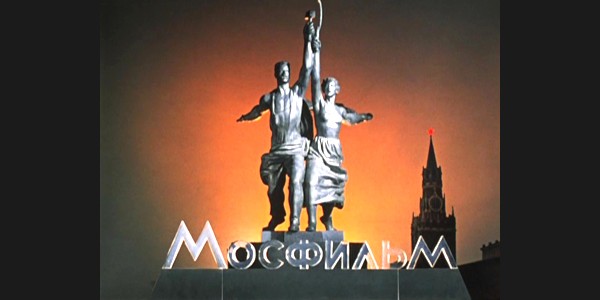Soviet cultural and scientific heritage is freed from the shackles of copyright. Expanding the “public domain” regime

And again about copyright. But already with a positive. After a series of legislative whips (laws regulating civil law circulation of content in the network, anti-piracy law, as well as proposals at the highest level for its expansion and tightening), the first carrot for the people appeared in the State Duma. This is a law that frees the entire Soviet cultural and scientific heritage from the shackles of copyright.
Thus, we have implemented another declared goal of the project “Time to change copyright” . The draft law was submitted by the Communist Party faction, State Duma Deputies O.N.Smolin, G.A. Zyuganov, I.I. Melnikov, A.A. Kravets, D.G. Novikov, S.N. Reshulsky, V.V.Bortko and was the result of the work of the working group of the “Pirate Party of Russia” and the Communist Party, created to change copyright laws.
1) Works of science, literature or art, created for public money and made public until December 31, 1992 inclusive, are transferred to the public domain from the moment of publication.
')
2) Reduction of the terms of protection of works of science, literature and art created in the Soviet period - they are recognized as being in the public domain from the date of the expiration of the 25-year term from the date of their publication (creation)
Thus, social justice restored in 1993 by the Supreme Soviet of the Russian Federation, which did not provide free use of works, was reduced, but reduced the legal access space, backdating the protection of works that had already expired by that time.

It is clear that at the present time, Shakhnazarov and other heads of companies, who have inherited catalogs of Soviet films, songs and photo archives with their generous hands of power, are now enraged. If the law is passed, undoubtedly, a large number of parasites, which have nothing to do with the creation of works, the rights to which belong to modern post-Soviet labels will undoubtedly lose most of the money that wallets have packed every year.
The day before yesterday I was on the air of LifeNews, where I discussed with the representative of RAO and Mosfilm about the proposed bill. The position of both, I think, is quite understandable. But I wanted to hear the arguments and numbers. Mosfilm’s lawyer refused to report the amount of income from the monopolistic use of Soviet works, saying that at first you should voice the amounts of income of pirates from using all the same works, and from the arguments defending the position that the exclusive rights to works created in the USSR should be protected as long as i heard the following:
1. If exclusive rights are revoked, how will they be protected?
I could not understand from whom and why it is necessary to protect, for example, the films “Arrival of a Train” or “Wedding in a Robin”, the music of the record company Melodiya or the ITAR-TASS photo archive?
2. Mosfilm spends a lot of money on the restoration and digitization of paintings. If Mosfilm loses revenue, then who will do it?
Sorry, but I really do not understand, do I really need to restore and digitize the picture every year? I figured it did just that once. In addition, in my opinion it is quite obvious that if the exclusive right to Soviet works ceases, then there will be a lot of craftsmen willing to digitize and restore such works. And even without those crazy budgets that Mosfilm lays on this.
If the bill is passed, any person will be able to copy and distribute works without hindrance (copies of which are in large numbers on the Internet anyway) under the “public domain” mode without prior permission from the copyright holder and without paying him remuneration. Such persons will also be protected from the threat that they may once be brought to civil, administrative and criminal liability for copyright infringement. In addition, any person will be able to get the legal right to create on the basis of these works remixes, mashups, remakes and in any other way rework works, which is a prerequisite in the digital age for the development of new creative forms. In addition, any content-oriented service will be able to freely implement in any way the display and listening to works released from copyright. At the same time, the resulting competition between content services will only contribute to the improvement of the services themselves, as it certainly happens on the market.
I suppose, intuitively, the bill is understandable to many users, but surely there will be those who say “Why do we need this law? Soviet works and so fully online. Find them is not difficult. " It's right. But I want to recall a few of the brightest moments, as the right holders exercised their rights, violating all the reasonable limits:
In November 2011, according to the anti-piracy law # 187-FZ, the Moscow City Court, at the request of Mosfilm, blocked one of the largest torrent trackers rutor.org for violating the exclusive rights to the film “The Prisoner of the Caucasus or the New Adventures of Shurik”, shot in 1967 by director Gaidai.
In 2010, there was a case when RAO demanded money from veterans for performing military songs, including the song “Darkie”, authored by composer A. Novikov and songwriter Jacob Shvedov, both dead in 1984.
In 2011, Prime Minister Putin promised to dissolve the “United State Film Collection” , which controlled a large number of exclusive rights to the works, after which the works should have been transferred to the public domain. However, thanks to the efforts of some lobbyists who did not want to lose income from the rental of the Soviet cultural heritage, the exclusive rights of WGCs were transferred to film studios.
FSUE “Soyuzmultfilm” who considers himself the copyright holder of all cartoons released at the studio and famous characters of Soviet cartoons, prohibits other people to use cartoons and characters without his permission. During his work, from 1936 to 1991, about 1,500 films have been accumulated in Soyuzmultfilm funds, in which at least 13,000 characters operate. And all this wealth, according to representatives of the film studio, can fully belong only to Soyuzmultfilm. In accordance with the current legislation, income from the use of property copyrights goes to “Soyuzmultfilm”, which later, at its own discretion, manages the proceeds. At the same time, the authors of music and scriptwriters, directors (as well as their heirs) of these cartoons / films have no rights under the existing and Soviet law.
That is why the transition of the Soviet and scientific cultural heritage to the legal regime of "public domain" is a very important and necessary step proposed by the Communist Party of the Soviet Union and supported by the Communist Party of the Russian Federation. I hope that this bill will fly through all 3 readings as quickly as the “anti-piracy law”, for which the electors voted by majority vote.
Source: https://habr.com/ru/post/223701/
All Articles